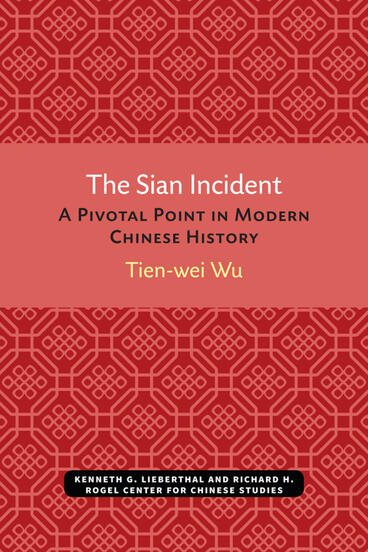The Sian Incident
A Pivotal Point in Modern Chinese History
Detailed study of the extraordinary capture in 1936 of Chiang Kai-shek by his own subordinate, Chang Hsueh-liang, and of the negotiations that altered the fate of the Communist Party and the anti-Japanese alliance
Description
When Chiang Kai-shek arrived at Sian in the fall of 1936 and laid plans for launching his last campaign against the Red Army with an expectation of exterminating it in a month, he badly misjudged the mood of the Tungpei (Northeast) Army and more so its leader, Chang Hsueh-liang, better known as the Young Marshal. Refusing to fight the Communists, Chang with the loyal support of his officers staged a coup d’état by kidnapping Chiang Kai-shek for two weeks at Sian. Almost forty years after the melodrama was over, the Sian Incident still absorbs much attention from both Chinese and Western scholars as well as the reading public. The Sian Incident attempts to bring together whatever information has been thus far gleaned about the subject, and to cover all aspects and controversies involved in it. [1, xi, xii]
Tien-wei WU is Professor of History at Southern Illinois University-Carbondale.

